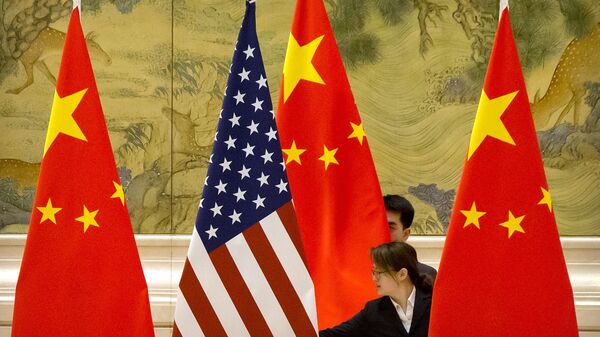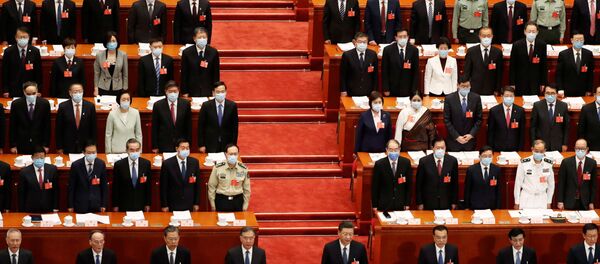The Global Partnership on Artificial Intelligence (GPAI) aims to study and provide recommendations on AI technologies that 'respect privacy and civil liberties', US chief technology officer Michael Kratsios told Bloomberg in an interview on Thursday.
The strategic group would be “a first of its kind global organisation that sees the future of AI as something that can uplift Americans and people around the world,” Mr Kratsios said.
Despite being sceptical of multilateral agreements, the GPAI would be an 'important' check on China's alleged approach to AI, Mr Kratsios said in his interview.
— Michael Kratsios (@USCTO) May 28, 2020
Beijing was also reportedly twisting "AI in ways that are in direct conflict with the values of the US and its allies,” Kratsios said, without further clarification or evidence.
The statements come as officials in Washington are set to outline US involvement at a G7 science and technology meeting on Thursday. Further countries such as New Zealand are also expected to join the programme.
The news comes as China passed its National Security Law set to enter force in August, which aims to strengthen control over Hong Kong, the former British colony returned to China as under a "one country, two systems" agreement in 1997.
US secretary of state, MIke Pompeo, said on Wednesday that Hong Kong would no longer be 'politically autonomous' under the new law, which could potentially trigger sanctions.
“This [COVID-19] crisis has put in focus a stark choice. AI must not be a tool to repress people and invade their privacy," Kratsios added.
The GPAI, formerly the International Panel on Artificial Intelligence, was first struck between Canadian Prime Minister Justin Trudeau and French President Emmanuel Macron in 2018 and aimed to "identify gaps, maximise coordination, and facilitate international collaboration," according to a statement.
Chinese Government Steps Up Technological Self-Sufficiency
The interview comes as Beijing approved measures for self-sufficiency in technology by building 700 key state laboratories to boost scientific research and development, reducing the mainland's dependence on foreign technologies.
Such labs were approved by the Chinese Ministry of Science and Technology (MOST) this week and follow a $1.4tn pledge from the State Council to boost key national technologies and infrastructure, including 5G and 6G research, AI and others.
Tencent Holdings, Alibaba Holdings, Huawei Technologies and many others will back the initiative, with the former announcing $70bn in funds to IT infrastructure in AI, cloud computing, blockchain and data centres, among many others.
The developments come after the US Department of Commerce extended its ban on Chinese companies added to an Entity List last year to May 2021, citing national security concerns and allegations that Chinese technologies could be used to spy for Beijing, which both the Chinese government and Huawei have repeatedly and sharply denied.
But the US government has continued issuing licences for US firms doing business with Chinese tech companies and failed to provide any evidence on its allegations, which Chinese authorities and Huawei have urged Washington to provide.




